Are you looking for an easy way to gather test results authorization from your clients or patients? Crafting a clear and concise letter template can streamline the process and ensure all necessary details are included. By providing a user-friendly format, you can simplify communication and maintain trust while seeking permission to access those important results. Ready to create your own letter? Let's dive in!

Patient Information
Patient information plays a crucial role in medical record management. Full name (for identification purposes) must be included, along with date of birth (to verify age and avoid mix-ups). Social Security number (for unique identification) is often required. Address (for correspondence and billing purposes) and phone number (for any necessary follow-up) add essential contact details. Insurance information (policy number, provider name) assists in managing costs and coverage. The patient's medical history (previous conditions, medications) can impact test result interpretation, while the date of the test (to ensure timely results) is vital for accurate tracking. Overall, comprehensive patient information ensures that test results can be authorized, communicated, and utilized effectively in medical decision-making.
Authorization Statement
Obtaining test results can be a critical process for individuals seeking medical insights. A well-crafted authorization statement typically includes the individual's full name, date of birth, and specific tests requested, such as blood tests or imaging scans, conducted by a healthcare provider or facility like XYZ Medical Center. It often requires the signature of the individual or a legal guardian, along with the date of approval, to ensure compliance with regulations like the Health Insurance Portability and Accountability Act (HIPAA), which safeguards personal health information. This authorization allows the release of pertinent medical records, ensuring prompt access to important health data for both patients and healthcare professionals.
Purpose and Scope
A formal document for collecting test results authorization is essential within healthcare settings to ensure patient confidentiality and compliance with regulations such as HIPAA (Health Insurance Portability and Accountability Act) in the United States. The purpose of this document is to obtain explicit consent from patients, allowing healthcare providers to share and access their test results. This process encompasses various medical tests, including blood work, imaging studies, and biopsies, typically conducted in facilities like labs or hospitals. Scope includes ensuring that the authorization covers all relevant parties involved, such as primary care physicians, specialists, and insurance companies, thereby streamlining communication and coordination of care. Patient information must be meticulously outlined to avoid any unauthorized disclosures, with a clear timeline for the duration of the authorization, typically ranging from a few months to a year.
Signature and Date
Authorization for collecting test results requires explicit consent for personal health information access. Individuals must provide a clear signature for identification. Dates should adhere to the format, typically MM/DD/YYYY, ensuring accuracy in documenting consent. This process often occurs within healthcare settings, such as hospitals or clinics, where patient confidentiality remains paramount under governing laws like HIPAA in the United States. Ensuring all information is correct safeguards individuals' rights and facilitates proper handling of sensitive data.
Contact Information
Collecting test results authorization requires clear contact information for effective communication. A standard approach includes providing the full name of the individual requesting the results, followed by a current phone number (10-digit format) to facilitate quick contact. An email address should also be included for documented communication and to send digital copies of results. Additionally, including a home address can aid in cases where physical documents need to be mailed. Accurate completion of this information is essential for maintaining the integrity of the authorization process and ensuring compliance with legal and privacy regulations, such as HIPAA in the United States.

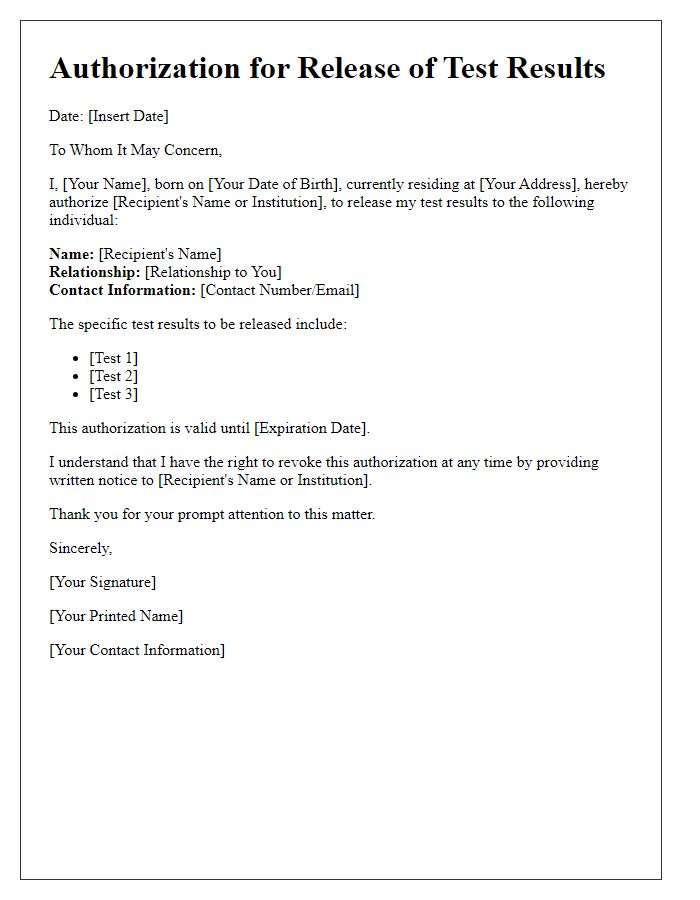
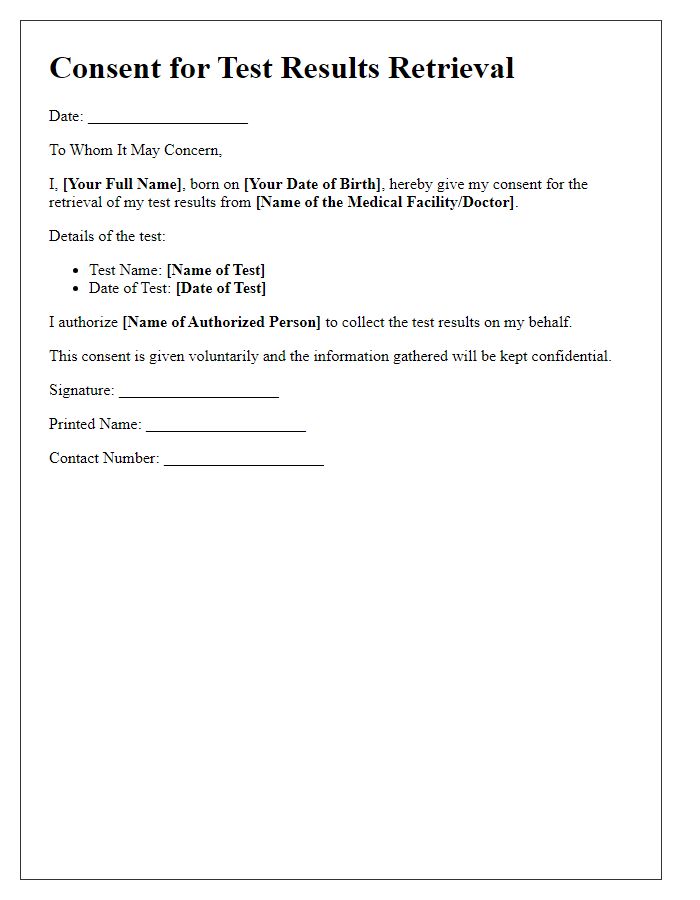
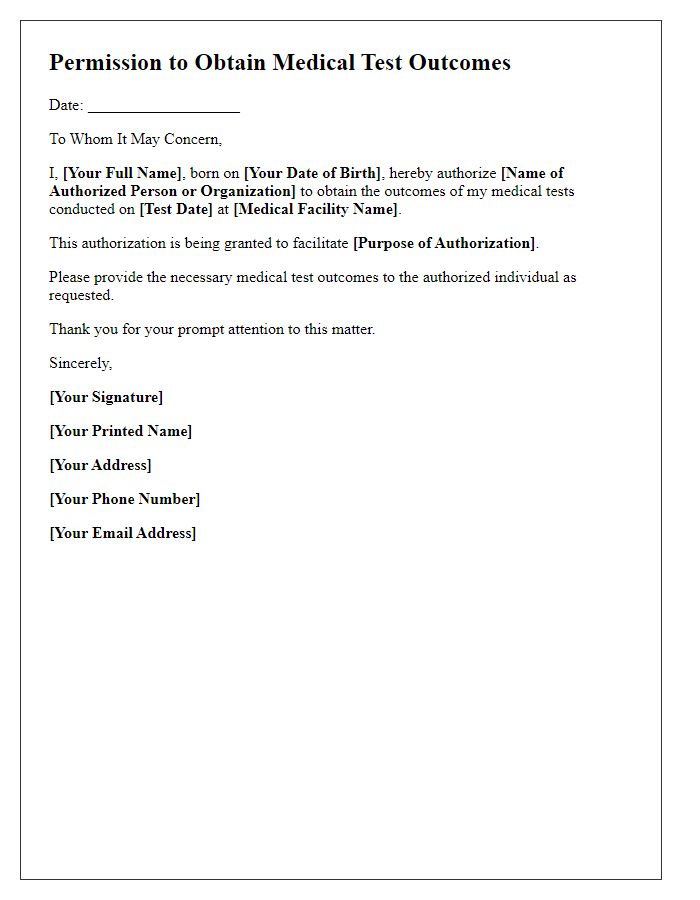
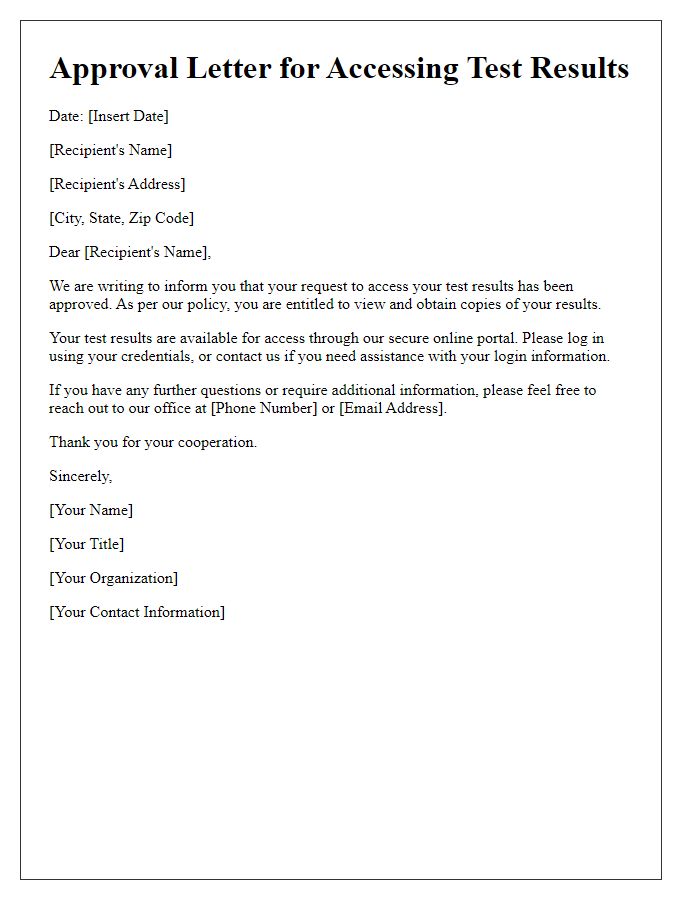
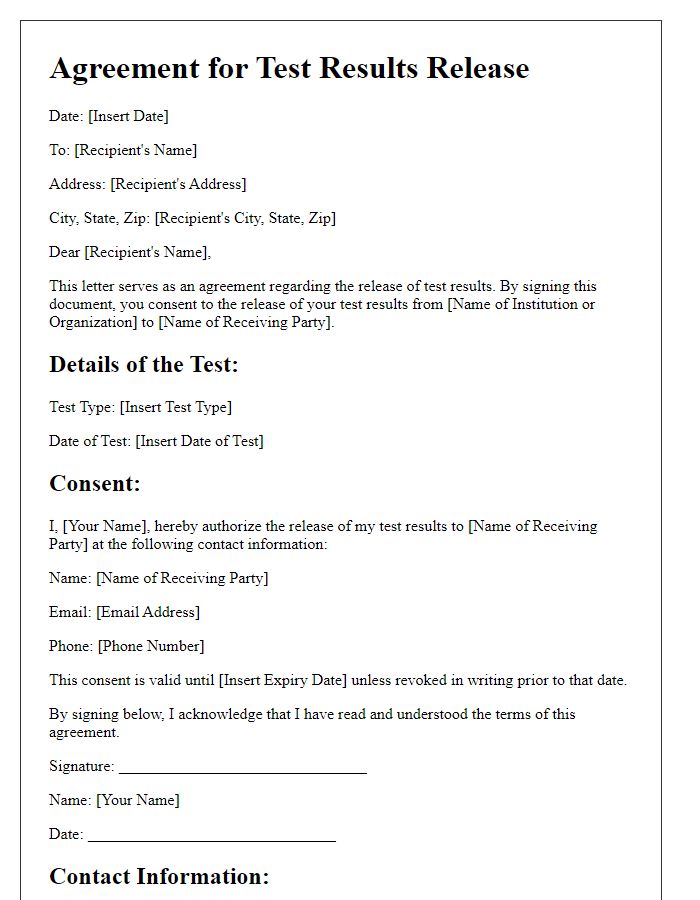
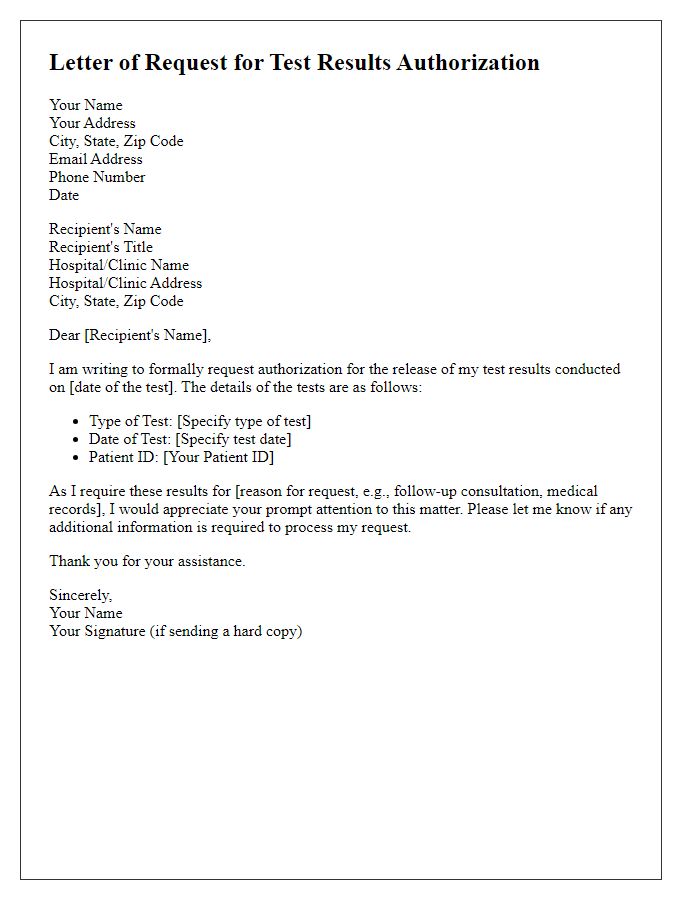
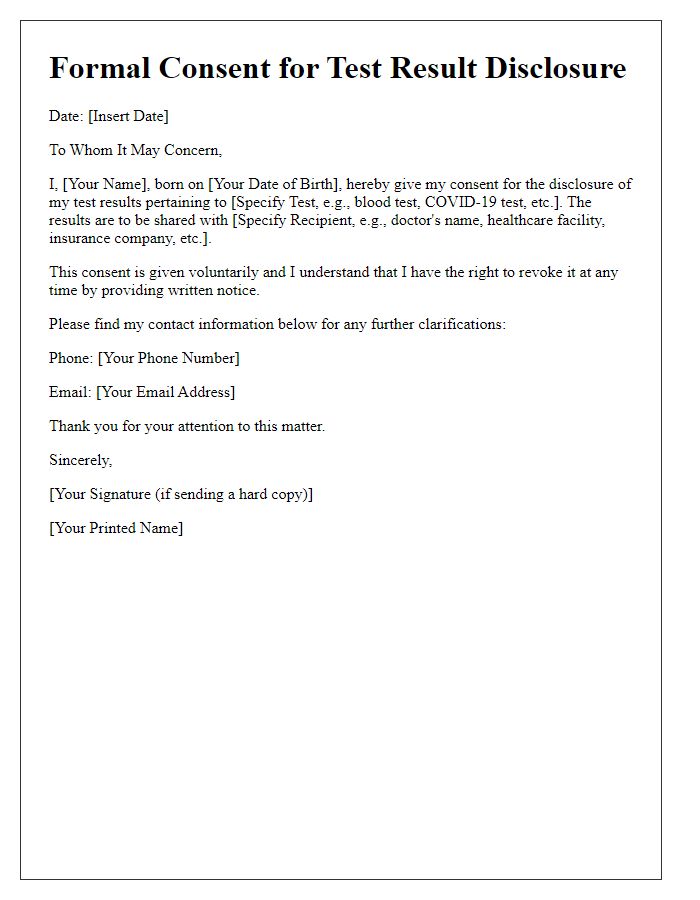
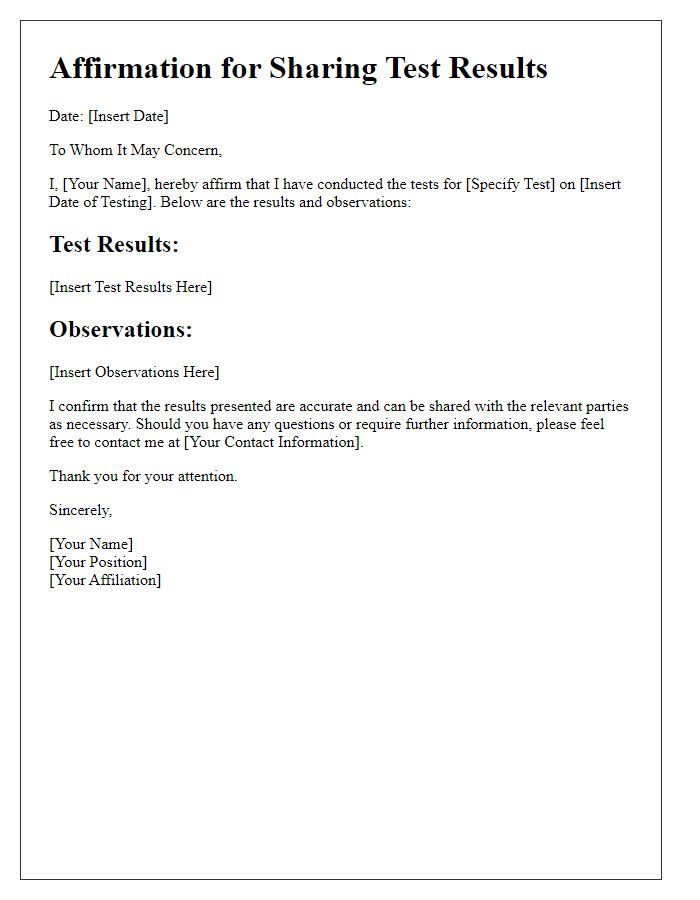
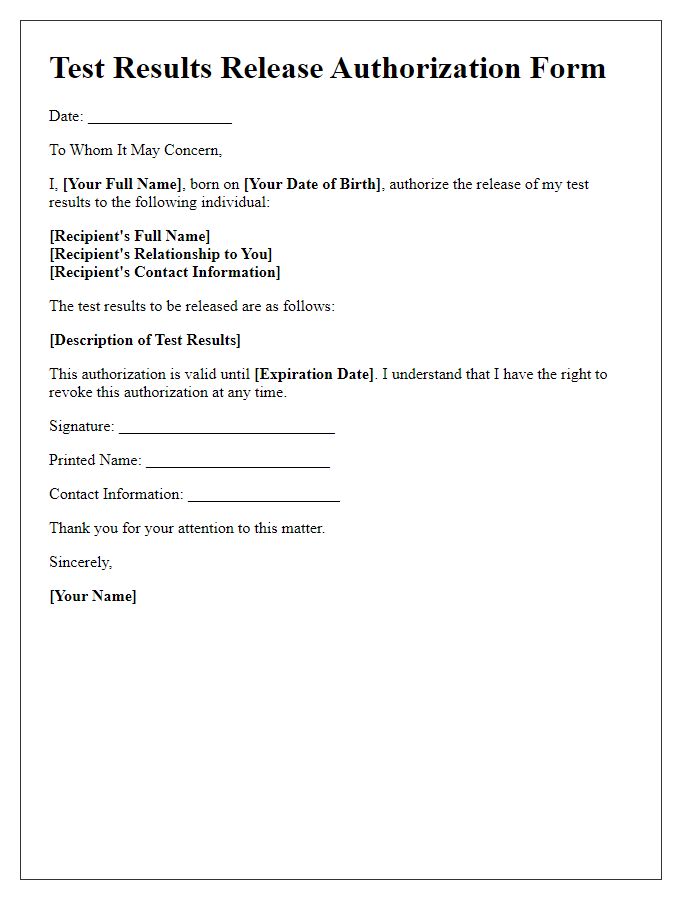
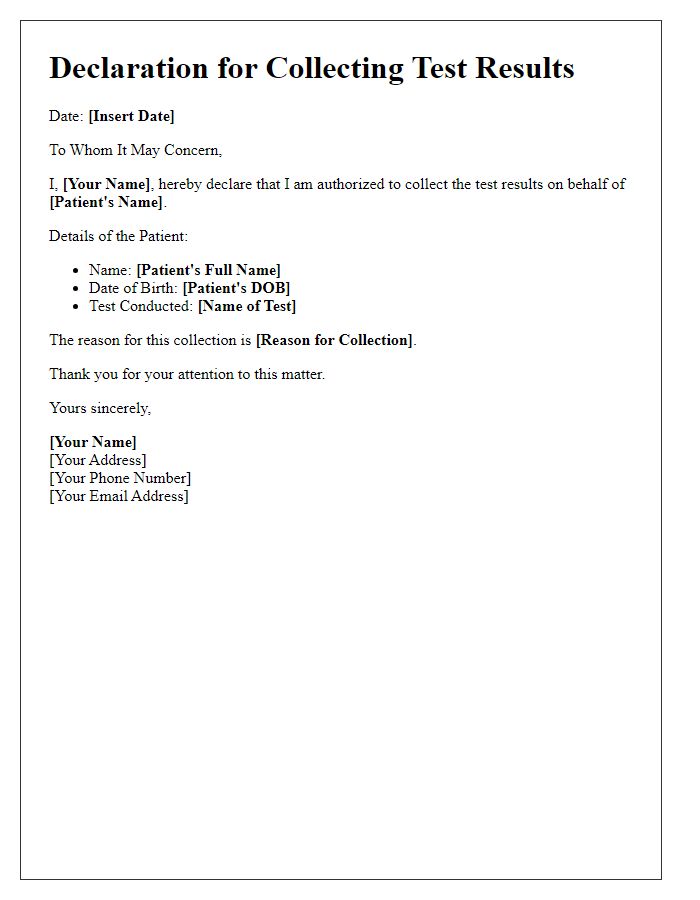


Comments